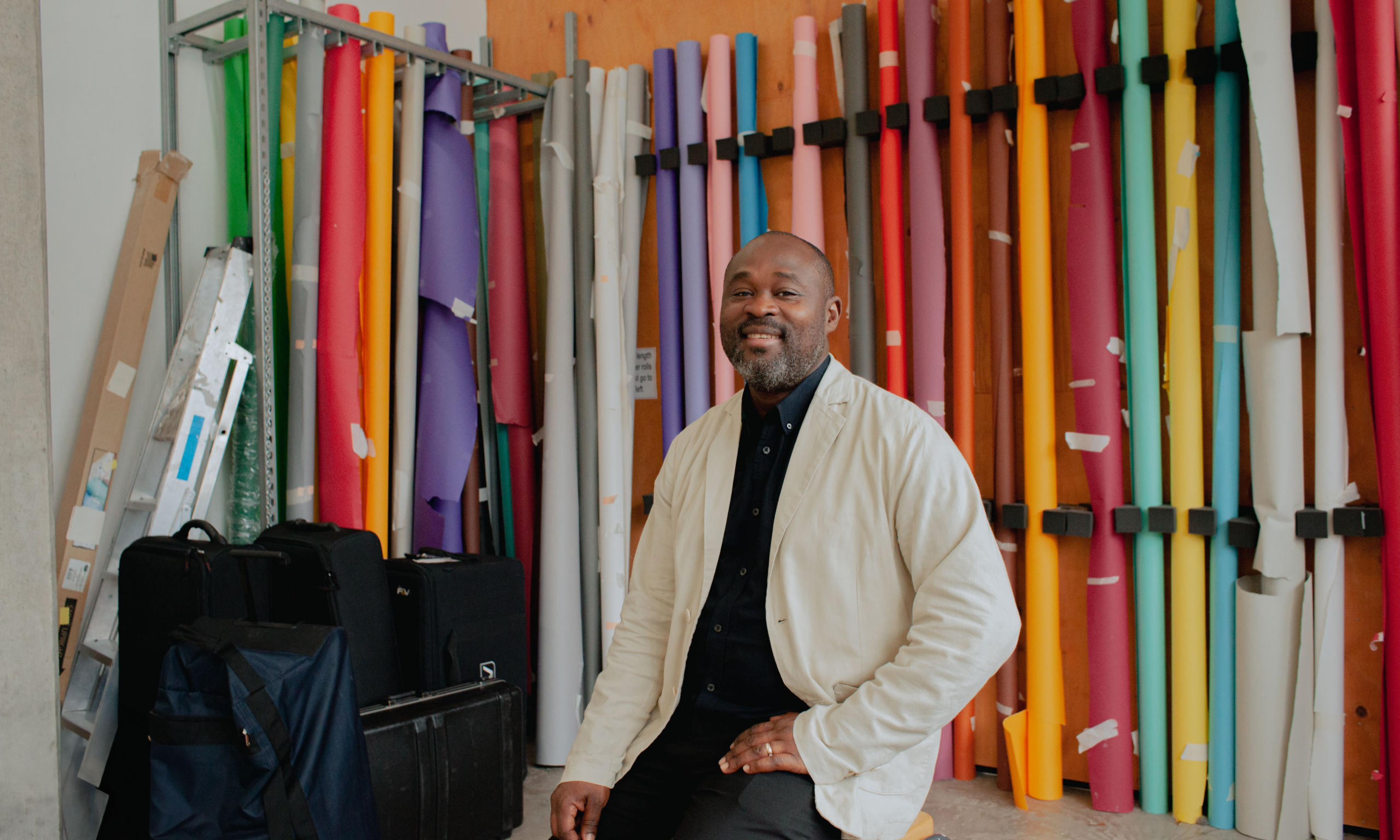Kene Igweonu says the Black Creatives Hub will build on the work of global movements calling for racial equality, such as Black Lives Matter
Kene Igweonu, Pro Vice-Chancellor and Head of London College of Communication, UAL. Photograph by Jerry Florez.
University of the Arts London (UAL)’s Black Creatives Hub is an online space designed to celebrate, support and increase the visibility of the organisation’s Black employees, students and alumni. Launched earlier this year by a staff working group, the initiative hosts a directory of Black artists and creatives, alongside community groups and targeted professional opportunities.
Maureen Salmon, senior lecturer for the Design School at the London College of Communication—a constituent college of UAL—calls the initiative a “timely intervention”. She says the hub seeks to address “significant underrepresentation for Black creatives”, and to build critical relationships for them across the UK’s broader creative industry.
The initiative will run in tandem with what professor Kene Igweonu, pro vice-chancellor and head of London College of Communication, describes as “the University’s wider anti-racism strategy and ongoing efforts to dismantle systemic racism within the arts”.
Here Igweonu, who is supporting the functioning of the hub, discusses his hopes for the project—and what its role could be in an increasingly challenging arts education landscape.
The Art Newspaper: What makes this moment the right time to launch the Black Creatives Hub?
Kene Igweonu: Global movements calling for racial equality, such as Black Lives Matter, highlighted the urgent need to address historical underrepresentation and provide a platform for Black talent, so for us, this is a pivotal moment to launch the Black Creatives Hub and to ensure there is a legacy following these vital global conversations. In addition, feedback from our Black students and staff underscored the strong desire for a space that amplifies their voices.
What is the importance of creating this space within the education sector, which has recently been under pressure from issues including cuts in art education funding?
Creating a space that celebrates creative work is crucial—especially in a challenging climate for higher education and the creative industries. Too often, the national debate pits STEM against the arts, but we believe this is a false dichotomy. Platforms like this highlight the vital role creativity plays in enriching our lives, exploring new ideas and fighting for solutions to some of our most pressing challenges.
Our students and alumni have gone on to transform industries and, over the years, we’ve been lucky to witness incredible Black talent, such as artists Chris Ofili and Yinka Shonibare, fashion designer Grace Wales Bonner, actor and playwright Kwame Kwei-Armah and filmmaker Steve McQueen, emerge from UAL. We want to continue this legacy by nurturing and inspiring the next generation of Black creatives, and UAL’s reputation and influence place us in a unique position to create and champion this much-needed space.
Does the new government offer hope of more support for initiatives like these?
We have been heartened by the new government's stated commitment to the creative industries, but we will continue to advocate for the enormous contribution that the arts make to the UK’s culture and economy. Initiatives such as UAL’s Black Creatives Hub not only showcase outstanding work, but highlight the careers and industries our students and alumni go on to influence and shape.
What are the hub's long-term goals, and how would that impact the creative industry?
Long-term, we’d like to expand our offering by creating offline spaces for Black creatives to interact and showcase their work, for example hosting physical events, exhibitions and workshops. Initiatives such as these will likely have a positive impact on the creative industry by promoting diversity and further amplifying the voices of Black creatives. The ambition is to also provide mentoring initiatives, designed to support the professional development and growth of Black creatives.

